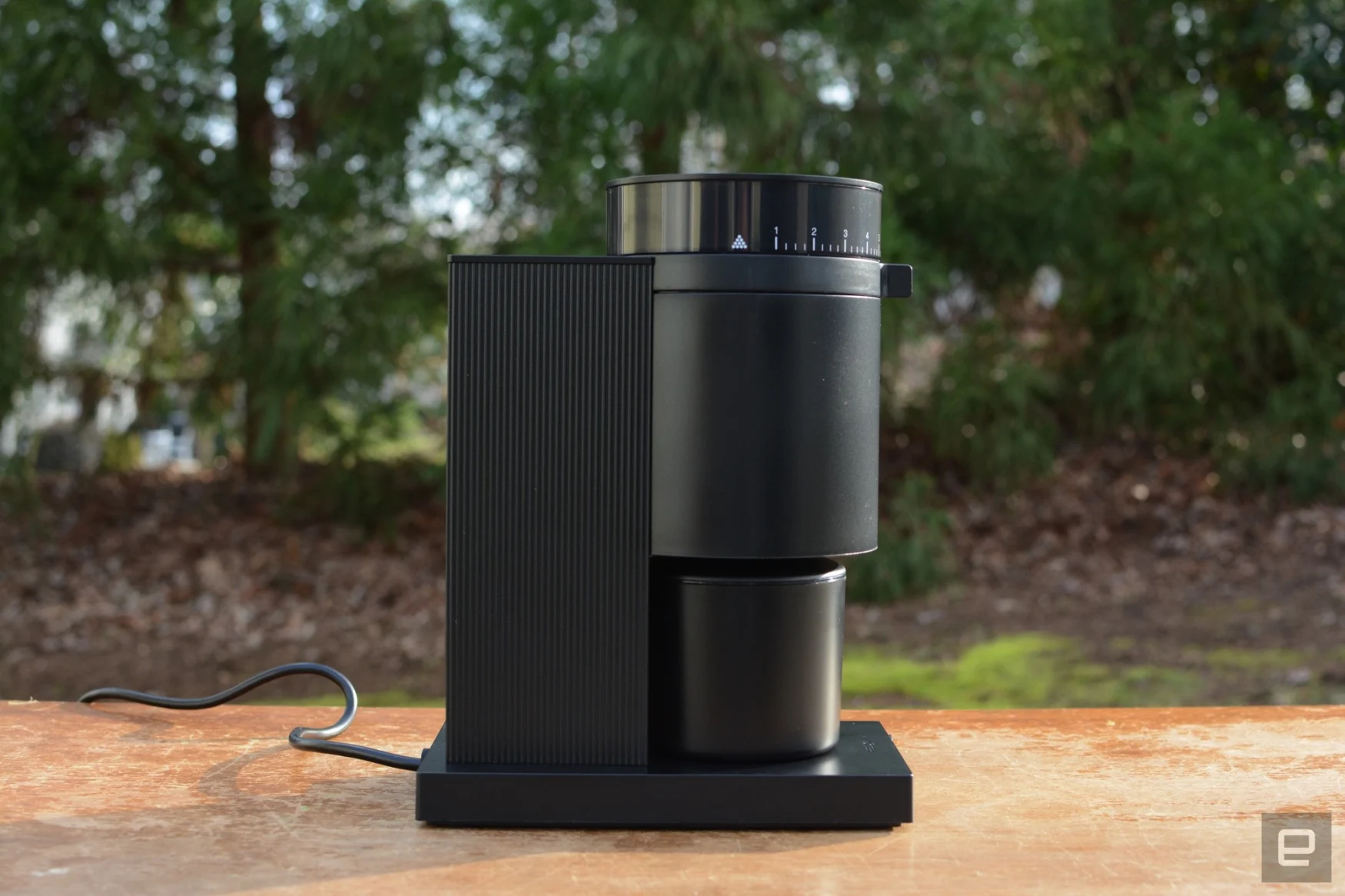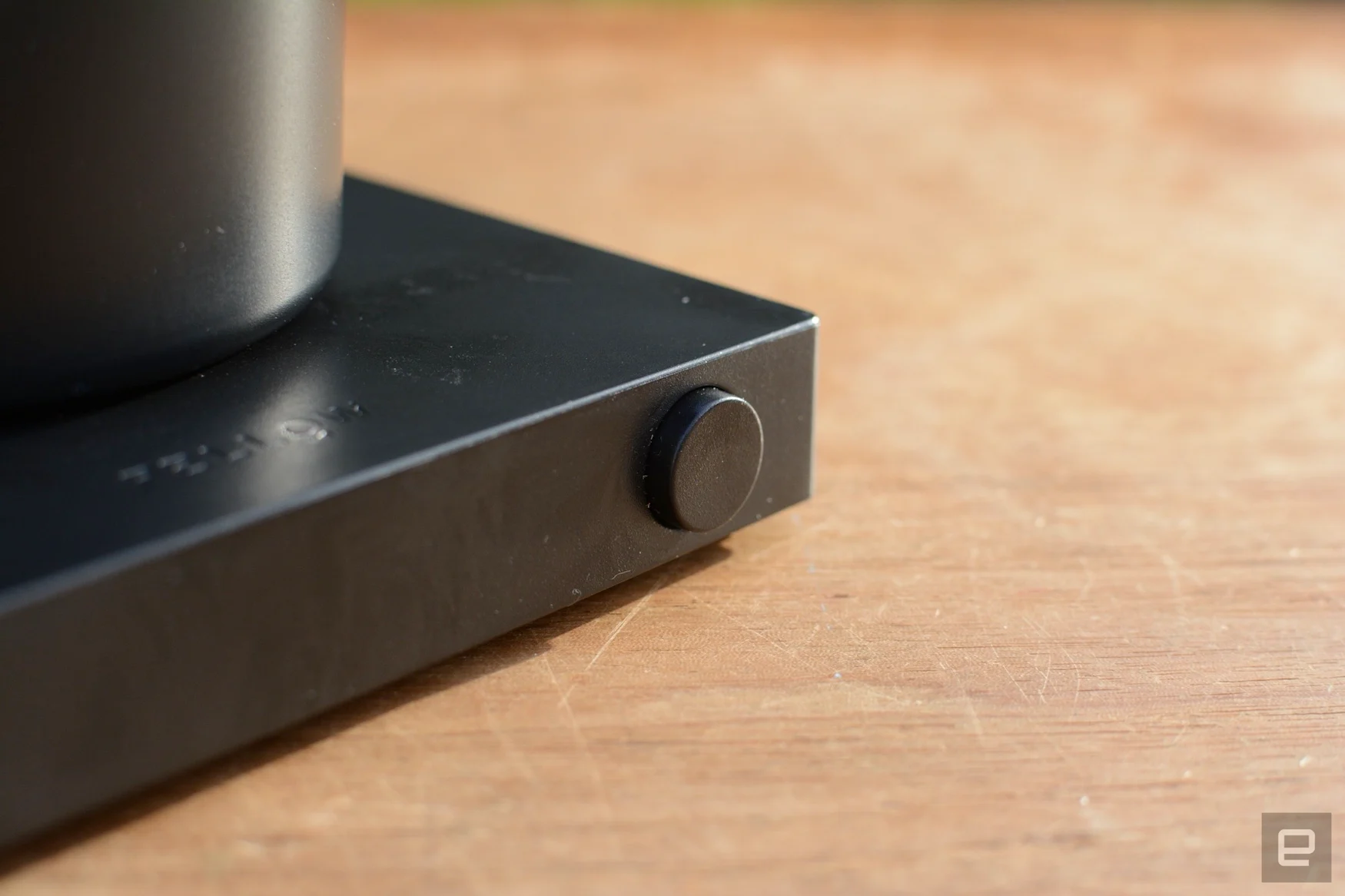When it comes to making coffee at home, there are people who do it and there are people who are obsessed with it. For many of us, we can’t just grab a bag of pre-ground swill from the grocery store and slap it in an auto-drip machine each morning. We need an arsenal of gear capable of extracting the nuanced flavors out of your locally roasted beans. And, if you’re like me, you like having the option of at least seven brewing methods because you really never know what you’ll be in the mood for. For true coffee lovers, a versatile grinder is a crucial piece of the at-home setup.
Fellow has a proven track record for well-designed, sturdy coffee gear. The company makes everything from travel mugs to kettles, including a grinder primarily designed to prepare beans for pour-over. That first model, the Ode, houses flat burrs capable of 31 grind settings that can cover AeroPress, French press, cold brew and other brewing methods too. However, it’s not capable of producing the fine grounds you need for espresso, and it was a pricey $299 at launch (the company now sells it for $255).
Enter the Opus. Fellow’s second grinder is more versatile than the Ode and can be used to prep beans for 9-bar espresso in addition to pour-over, French press, cold brew and much more. It also has ten more grind settings than the previous model and employs conical burrs to achieve consistent results. Like the Ode, the Opus has a magnetically-aligned catch cup outfitted with a spouted ring that helps keep your counter clean, doing so with the assistance of Fellow’s anti-static technology. Also like its predecessor, the Opus doesn’t have a massive hopper to store beans on top: it’s meant to be a single-dose machine where you can grind up to 110 grams at a time. This saves space since the Opus is considerably shorter than a lot of the competition. Plus, that design choice gives the device a much more refined appearance than the typical coffee grinder.

Billy Steele/Engadget
I have been using the Baratza Encore since I compiled the first coffee buyer’s guide for Engadget in 2019. If you take a poll among professional baristas, I’d wager the majority of them would tell you that’s the gold standard for at-home coffee grinders. And it’s for good reason: the Encore is very versatile and has been producing consistent quality for years. It does have the big hopper up top, whether you want to store your beans there or not. It’s loud, and because it pushes ground coffee into the catch from the side, there’s a lot of mess that ends up on your counter.
The Opus quickly solved two of the issues I have with the Encore. First, it’s remarkably quiet. I can actually run the Opus at night or early in the morning while my two-year-old is still asleep in a room near the kitchen free from worry I’ll wake him. That’s not always the case with the Encore. Second, the Opus drops grounds straight down into the catch cup, leaving less room for debris to escape. Fellow’s new grinder doesn’t have a knocker to reduce grind retention like the Ode, but it doesn’t need one. When I put in 70 grams of whole beans, I get 70 grams of ground coffee every time. It’s been so consistent I no longer feel the need to reweigh grounds to make sure I have enough – an added step I undertook with the Encore. And when you’re grinding for espresso, Fellow has included an insert for the catch cup to make transferring small loads to a portafilter a much less messy affair.
Fellow has also made the Opus very easy to use. A rotating ring near the top spins to adjust to your desired coarseness. If you’re like me and forget which setting to use for French press or pour-over, Fellow has printed a guide inside the lid of the bean chamber. No more reaching for a notebook or your phone to Google, the details you need will be right there when you go to load whole beans.

Billy Steele/Engadget
Ease of use extends to the controls. There’s only a single button you press to operate the Opus: one press for 30 seconds, two for a minute and three for 90 seconds. You can also long press the button for the grinder to run a full two minutes. Unlike the Ode, the Opus doesn’t turn off when it senses all the beans are ground. Instead, it runs until the selected time runs out or you mosey back to and press the button one final time. The lack of auto-shutoff doesn’t bother me though, since the Encore runs until you turn it off with no set time options.
The Opus improves three things for my daily coffee routine. It runs quietly and it keeps my kitchen cleaner while producing consistently ground beans no matter which setting I put it on. It also looks a lot better than the two coffee grinders I’ve used for any length of time, mostly due to the fact that the lack of a large hopper makes it as much of a showpiece as a piece of brewing equipment. At $195, it’s significantly cheaper than the Ode but slightly more than the Encore. Those few extra dollars I’d gladly part with for clean counters, a toddler that sleeps a few more minutes and a dash of modern flair.
Gallery: Fellow Opus review | 13 Photos
Gallery: Fellow Opus review | 13 Photos
All products recommended by Engadget are selected by our editorial team, independent of our parent company. Some of our stories include affiliate links. If you buy something through one of these links, we may earn an affiliate commission. All prices are correct at the time of publishing.